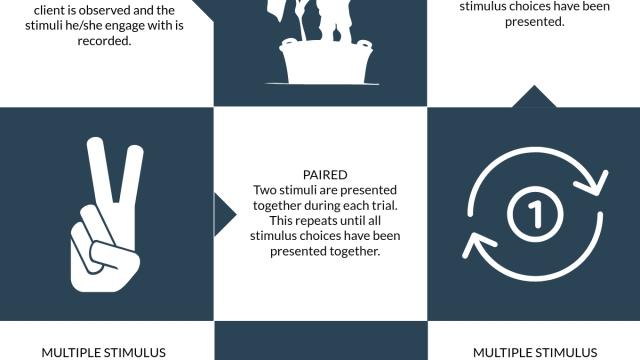Applied Behavior Analysis (ABA) therapy is a transformative approach that has the power to unlock the potential of individuals across a wide range of developmental, behavioral, and social challenges. By utilizing the principles of behaviorism in a systematic and evidence-based manner, ABA has become a cornerstone in empowering individuals to lead more fulfilling lives. Whether it’s helping children with autism spectrum disorder improve their communication skills or supporting individuals with intellectual disabilities in acquiring independent living skills, ABA therapy has proven its remarkable efficacy in various contexts.
At its core, Applied Behavior Analysis aims to understand the relationship between behavior and its environmental factors, taking into consideration the science of motivation and reinforcement. By examining the antecedents that trigger a behavior and the consequences that follow, ABA practitioners are able to design intervention plans that promote positive behaviors while reducing or eliminating challenging ones. This individualized approach puts the needs and strengths of each person at the forefront, ensuring that interventions are tailored to their unique circumstances and goals.
The impact of Applied Behavior Analysis extends beyond individual behavior change; it also plays a crucial role in empowering families and communities. By equipping caregivers and educators with the tools and strategies to implement ABA principles in daily life, this therapy creates a collaborative and supportive environment that fosters growth and development. The comprehensive nature of ABA therapy ensures that progress is not limited to therapy sessions alone but is integrated into all aspects of an individual’s life, allowing for long-term sustainable change.
In this article, we will delve deeper into the principles and applications of Applied Behavior Analysis, exploring how this remarkable therapy is transforming lives for the better. From decoding the science behind ABA to examining its diverse applications in different settings, we will shed light on the immense potential of this powerful approach. By understanding the fundamental tenets of ABA therapy and the positive outcomes it can yield, we can pave the way for a more inclusive and supportive society, truly unleashing the power of Applied Behavior Analysis.
Understanding ABA Therapy
Applied Behavior Analysis (ABA) therapy is a highly effective and evidence-based approach to understanding and improving human behavior. It is a form of therapy that emphasizes the principles of behavior analysis in order to bring about positive and meaningful changes in individuals’ lives.
ABA therapy is based on the understanding that behavior is influenced by the environment, and that by modifying environmental factors, we can shape and modify behavior. This therapy focuses on identifying the underlying causes of behavior, as well as the consequences that may be reinforcing or maintaining it. Through careful observation and analysis, behavior analysts are able to develop tailored interventions that address specific behavioral goals and objectives.
The goal of ABA therapy is not only to address challenging behaviors or skills deficits, but also to enhance individuals’ overall quality of life. This therapy has been proven to be effective across a range of populations, including individuals with autism spectrum disorder, developmental disabilities, and various mental health conditions. ABA therapy has the power to unlock the potential within individuals, helping them to acquire new skills, reduce problematic behaviors, and improve their independence and social interaction abilities.
In summary, ABA therapy is a comprehensive and systematic approach that harnesses the power of behavior analysis to transform lives for the better. By understanding the principles and techniques of applied behavior analysis, therapists are able to make significant and lasting improvements in individuals’ behaviors and overall well-being.
Applications of Applied Behavior Analysis
Applied Behavior Analysis (ABA) therapy, a widely recognized and evidence-based approach, has been instrumental in transforming lives across various fields of application. By harnessing the power of behavior analysis principles, ABA therapy has proven to be incredibly effective in bringing about positive behavioral changes in individuals of all ages. Let’s explore some key areas where the application of ABA has made a significant impact.
Education: ABA techniques have been extensively utilized in educational settings to enhance learning outcomes for students. By breaking down complex tasks into smaller, manageable components, ABA helps individuals build new skills and reinforce existing ones. Whether it is teaching academic concepts, promoting social interactions, or developing self-help skills, ABA strategies provide educators with practical and structured methods to optimize learning experiences for students with diverse needs.

Developmental Disabilities: ABA therapy has been particularly beneficial in supporting individuals with developmental disabilities. By targeting specific behaviors and implementing systematic interventions, ABA helps improve communication, social interactions, and adaptive skills among this population. Whether it is reducing challenging behaviors or facilitating language development, the personalized nature of ABA allows for tailored interventions that address the unique needs of each individual.
Autism Spectrum Disorder (ASD): ABA therapy has emerged as one of the most widely accepted and effective treatments for individuals diagnosed with Autism Spectrum Disorder. Through systematic assessment and interventions, ABA helps individuals with ASD acquire essential life skills, decrease problem behaviors, and enhance their overall quality of life. By focusing on positive reinforcement and individualized treatment plans, ABA offers a structured approach that promotes progress and empowers individuals with ASD to reach their full potential.
In conclusion, the applications of Applied Behavior Analysis (ABA) extend beyond specific fields, having a profound impact on education, developmental disabilities, and Autism Spectrum Disorder (ASD). Through the utilization of evidence-based practices and individualized interventions, ABA therapy continues to transform lives and pave the way for a brighter future.
The Impact of ABA on Individuals and Society
Applied Behavior Analysis (ABA) therapy has been instrumental in transforming the lives of individuals affected by various behavioral challenges. By providing evidence-based interventions and strategies, ABA therapy equips individuals with the essential skills they need to thrive in their daily lives. Whether it’s developing communication skills, improving social interactions, or enhancing academic performance, ABA has a profound impact on individuals with autism spectrum disorder (ASD) and other developmental disabilities.
Moreover, the ripple effects of ABA therapy extend far beyond the individual. By arming individuals with the necessary tools to navigate their environment, ABA plays a crucial role in fostering inclusion and acceptance within society. As individuals with ASD and other developmental disabilities gain independence and functional skills, they become active contributors to their communities. This not only enhances their own well-being but also promotes a more inclusive and diverse society where everyone can participate fully and equally.
ABA therapy for peer interactions
Through its focus on individualized and data-driven interventions, ABA has gained recognition as an effective approach for behavior modification and skill development. It empowers individuals to overcome challenges, realize their potential, and lead meaningful lives. By promoting positive behavior change and reducing problematic behaviors, ABA enhances the quality of life for individuals and their families. Furthermore, by emphasizing collaboration and consistency, ABA cultivates a supportive network of caregivers, educators, and therapists who work together to facilitate progress and ensure long-term success.
In conclusion, ABA therapy holds tremendous potential in transforming lives for the better. Its impact on individuals with ASD and other developmental disabilities cannot be overstated. From facilitating personal growth and self-advocacy to promoting social inclusion and community engagement, ABA therapy has the power to create a more compassionate and supportive society for all.






